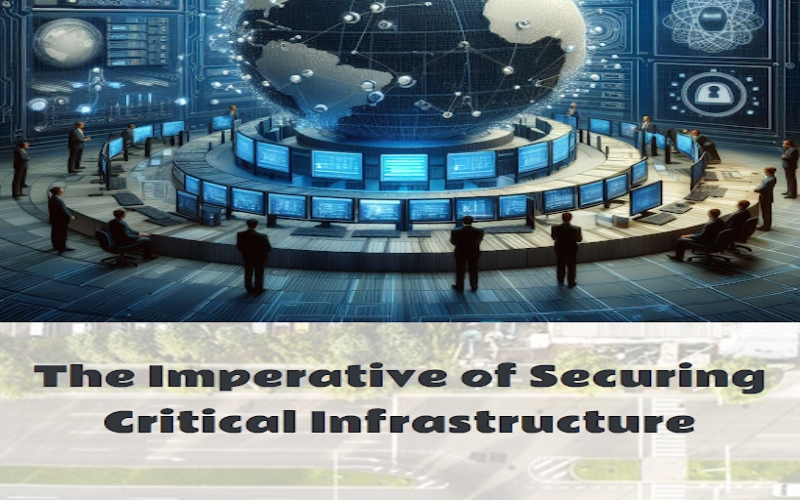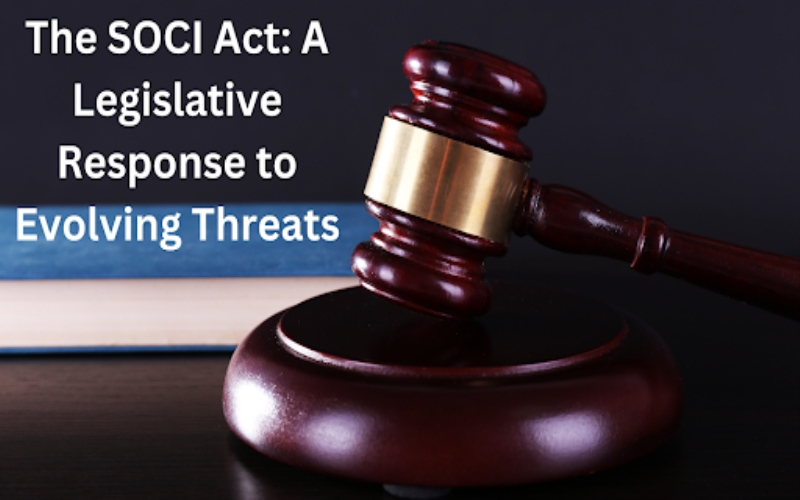Modern life hinges on essential systems such as power, water, travel, and the internet. People rely on these connected systems running all the time. For the government, protecting ‘critical infrastructure’ remains a paramount priority.However, private companies—not the government—own over 85% of America’s critical infrastructure.Collaboration through laws such as the SOCI Act is crucial. It will make these systems resilient when facing threats.
Our daily lives depend on essential infrastructure. We rely on electric and water utilities to work properly. A significant portion is privately owned, not by public officials. Cooperation between them is needed to boost safety. New legislation aims to make that a reality.
It is pushing for upgrades. These upgrades will allow critical services to withstand and bounce back from cyberattacks. They will also help them recover from natural disasters. It’s about securing society’s foundations.
The Imperative of Securing Critical Infrastructure

The Department of Homeland Security (DHS) designates 16 infrastructure sectors as vital to economic stability and public safety. The complex interdependencies of these sectors mean that disruptions can lead to cascading effects.
This became evident during the 2021 Texas freeze. Power losses harmed natural gas infrastructure, creating statewide shortages. It highlighted the inherent fragility of interconnected networks.
Climate change adds volatility, manifesting as extreme weather conditions.Modelers warn that infrastructure disruptions will become more frequent if resilience measures lag. Cyber threats exploit unsecured operational technology systems, increasing vulnerabilities.
This vulnerability increases the likelihood of adversaries disrupting critical infrastructure. Such disruptions could lead to widespread unrest. They could combine physical and digital elements. This potential cannot be discounted.
The evolving risk landscape led the DHS to rank collaborative critical infrastructure security. The DHS views it as central to national stability. Over 85% of these assets are private. Public-private cooperation offers the best possibility to enhance resilience holistically.
The SOCI Act: A Legislative Response to Evolving Threats

The 2021 Security of Critical Infrastructure Act cultivates resilience specifically against cyber threats. It establishes enhanced reporting channels between infrastructure owners and the government. This facilitates the sharing of threat intelligence.
Sizable infrastructure companies manage extensive supplier networks. SOCI created the Joint Cyber Planning Office. It aims to help firms struggling with cyber preparedness.
The Defense Industrial Base relies on over 100,000 different suppliers. This creates a giant area where hackers can break in. Other countries use these types of cyber threats to gain an advantage. SOCI made it a law for companies to report hacks to DHS. This allowed quick warnings to everyone affected. This helped stop attackers from using their access to slip into more networks.
All those suppliers mean lots of openings for sophisticated hacking by enemy nations. The SOCI Act says companies have to report cyber incidents. This allows DHS to urgently alert others in that supply web.
That way, security teams can respond before the hackers take over all linked systems. Reporting requirements let officials know about threats coming through partners. They can cut off attacks before things escalate.
Public-Private Collaboration: Amplifying Infrastructure Security
As important systems like power grids and water networks rely more on computers, the government and private companies need to work together closely on cybersecurity. This helps them stay aware of hacking threats and react as a team.
Organizations within Homeland Security, such as the Cybersecurity Infrastructure Agency (CISA), partner with critical service companies.
They do this to share updates about cyber attacks. This information sharing allows faster threat detection. It also enables a coordinated response to minimize impacts. Staying informed enables seeing risks coming and reacting together.
So much critical infrastructure is now connected online. Digital attacks could seriously disrupt whole communities. Public and private cooperation enables alerting each other about the latest cunning threats.
Sharing information also helps build better defenses and respond powerfully when incidents occur. It makes the nation more resilient.
CISA’s Joint Cyber Defense Collaborative (JCDC) brings together private companies. It also brings together federal, state, and local agencies. They share actionable intelligence on cyber threats. By collectively harnessing skills and resources against systemic risks, resilience improves holistically. Still, complex interdependencies spanning infrastructure sectors create coordination hurdles requiring persistent engagement.
Overcoming Challenges, Capitalizing on Opportunities
Companies recognize the benefits of collaborating with the government on cybersecurity. But, there are contractual limitations on sharing sensitive data. Giving up control are reality to balance business obligations. This can constrain the partnership. However, there are still creative ways to improve collaboration. We must respect the priorities of both sides.
Building trusted relationships through persistent engagement helps align interests for maximum infrastructure security. Partners can establish controlled environments. This allows private entities to share threat intelligence without concerns of public disclosure.
Such transparency nurtures an understanding of the true constraints governments and businesses experience. It enables better navigation of obligations for cooperation on cyber initiatives. It secures society collectively.
While multi-directional communication and transparency regarding constraints enable progress, incorporating smart technology also unlocks opportunities. JCDC experiments apply artificial intelligence to detect abnormal network activity. It also uses machine learning to automatically recommend optimal responses. This lets humans focus on strategy.
The efficiencies advanced analytics provide lead many experts to predict that such integration is inevitable for Managing future threats. Pursuing innovation through flexible partnership models maximizes gaining early experience in impactful technology adoption.
It also builds cooperative muscle memory. Public and private custodians maintain modern life.
FAQs
What is the SOCI Act and what does it aim to accomplish?
The Strengthening Cybersecurity for Critical Infrastructure Act (SOCI) aims to formalize collaboration between public and private entities to improve cybersecurity policies and technology usage for critical infrastructure sectors like energy, finance, transportation, etc. It establishes a Cybersecurity Advisory Committee involving both public sector officials like CISA and private stakeholders to provide recommendations to the Department of Homeland Security.
Why is public-private collaboration important for bolstering infrastructure cybersecurity?
Cyber threats are rapidly evolving and critical infrastructure owned by private entities like power plants and railway systems are vulnerable targets. Open communication channels between government intelligence agencies and infrastructure companies can ensure the timely sharing of attack indicators, best practices, and technology standards. Pooling public sector threat insights with private sector oversight of systems facilitates faster security upgrades.
What are the expected tangible outcomes of SOCI-driven public-private partnerships on infrastructure security?
Outcomes include the development of cybersecurity frameworks tailored to specific critical infrastructure verticals. Partnerships will also fund pilot programs for testing and optimizing security technologies like AI-based anomaly detection and blockchain-enabled access management across infrastructure ecosystems. Joint cybersecurity exercises involving mock attacks on power grids or oil pipelines are also planned. These initiatives will provide learnings to refine practices, policies, and preparedness through ongoing collaboration.
Conclusion
Today, companies and officials rely on extensive but vulnerable critical infrastructure. They must always evaluate safety. However, stopping sophisticated enemies also takes everyone working together against lurking threats. Online dangers keep growing. The SOCI Act gives America hope by pushing cooperation. It’s already making infrastructure more resilient.
Life now centers on many interconnected systems. These include power, water, and the internet. These systems could fail. Their operators and government monitors need to regularly check security. But clever hackers are still finding ways in. We also need the entire community to watch for signs of cyber attacks. This is necessary to protect what modern society depends on.
Since cyber risks evolve quickly, infrastructure must constantly defend itself. The SOCI Act pioneers public and private teams joining forces against attackers. It removes barriers to information sharing. This way, everyone can spot and act on the latest threats. Models of collaboration the law creates are already making key systems stronger.





